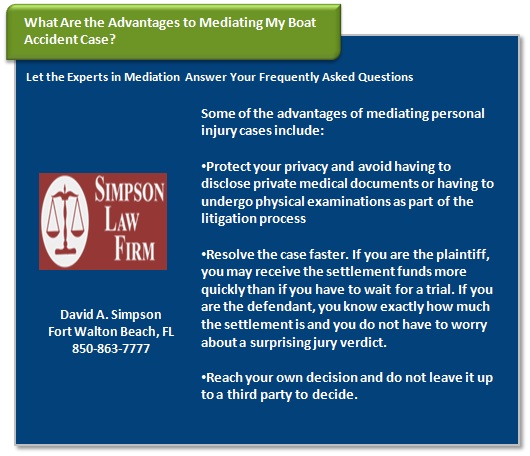
Mediation of Art Disputes
 Art disputes can often be complex in nature, often dealing with legal and non-legal issues that are interwoven. These disputes require a thorough understanding of every aspect that affects the dispute. Whether arising from a divorce case in which the ownership or value of the art is in question or dealing with disputes in the art industry, art disputes can often be sorted out during the course of mediation.
Art disputes can often be complex in nature, often dealing with legal and non-legal issues that are interwoven. These disputes require a thorough understanding of every aspect that affects the dispute. Whether arising from a divorce case in which the ownership or value of the art is in question or dealing with disputes in the art industry, art disputes can often be sorted out during the course of mediation.
Mediation is a proper mechanism to handle disputes arising out of return and restitution, intellectual property, loan and deposit and acquisition disputes. It can also be used for issues involving digitalization, misappropriation, art being used as collateral in a financing transaction or donation issues. Art disputes may also involve special cultural distinctions. Parties involved in mediation get to choose the mediator that will be used and can look for someone with an art background or someone who is knowledgeable on art subjects.
During mediation, the intricacies of the art dispute can be addressed within the legal framework. Since mediation is a voluntary process, the parties can look to the law for guidance but are not bound by its parameters. For example, if a statute of limitations has passed, there may still be a remedy through mediation. At the same time, the parties can consider the legal issues and how a court may decide a particular issue while pursuing an amicable agreement.
The mediator tries to get the parties to see the situation from the other’s side and provides a realistic vision of how the case may eventually be resolved if the parties do not find a way to settle their dispute. The alternative is often much longer, public and expensive than mediation.
Considering Alternative Dispute Resolution for Shareholder Disputes
Shareholder disputes are far too common and are often caused by a desire for one or more shareholders who want to terminate the shareholder relationship. However, they can also arise because shareholders disagree how a business is being run or because shareholders fear liability on the part of other shareholders that they believe is illegal or fraudulent. Shareholders may allege misconduct such as misappropriation, breach of fiduciary duty or breach of the shareholder agreement.
Shareholders may consider mediation to help resolve disputes of this nature. Mediation uses an impartial third party to help resolve the case. This avoids the publicity of a trial and the dissemination of private information to the public. Parties can choose their mediator, so they may select someone who is experienced in the same industry that the shareholders are a part of. Mediation allows both sides to communicate their perspective and to express their interests. The mediator attempts to bridge the communication gaps between the parties while offering valuable feedback regarding the merits of different claims or defenses. The mediator may provide suggestions on ways to potentially settle the claim and will encourage both parties to come up with their own creative solutions. This form of ADR is particularly well-suited to shareholder disputes because it is non-adversarial in nature, allowing the parties to reach an amicable solution and maintain their relationship.
For other cases, shareholders may consider arbitration as a way to resolve the dispute. Arbitration is an abbreviated form of litigation. However, the parties choose the decision maker instead of having a judge or jury. Arbitration can be binding by nature and can only be appealed on limited grounds. The arbitrator can issue a binding decision that all parties must adhere to. At the same time, arbitration offers a less expensive and faster resolution than would likely be available through litigation
March 6, 2017
Surviving divorce after 50 – If you’re going through a divorce later in life you’re not alone — it’s actually a growing trend, leading researchers to coin the phase “Gray Divorce.”
2017 Started With Fewer Homes in Foreclosure – The share of U.S. homes in foreclosure fell slightly in January, down 3.55% from December and down 12.94% from January 2016. The figures come from real estate data company ATTOM Data Solutions, which bases foreclosure rates on the portion of residential properties in any of the three stages of foreclosure: default, auction and repossession.
Black Knight’s Mortgage Monitor: Strong Q4 Pushes 2016 Originations to Highest Level in Nine Years; Reperforming Loan Population Sits at Nearly Two Million – $2.1 trillion in first lien mortgages originated in 2016 represented a 17 percent increase over 2015; refinance lending was up 22 percent, while purchase originations rose 13 percent
March 3, 2016
The importance of opening presentations in mediation – Some clients and their lawyers question the need or use of an opening presentation in mediation. Mediators, however, often advocate for them. It provides them with a foundation on which to build upon when discussing the issues with the parties. While some may challenge this approach, we consider that there are clear advantages in opening presentations and the opportunity to make a good one should be taken. Recently, we witnessed this in two mediations in which we were involved in as described below.
Who gets the dog in the divorce? – It’s clear the relationship isn’t worth salvaging. A breakup is imminent, and it’s time to divvy up assets. But a question lingers: Who gets the pets?
Mountain of mortgage paperwork wears down borrowers – Could getting a home mortgage under today’s post-housing bust regulations and procedures be even remotely comparable to going to the dentist to get drilled? Or anything like having your annual physical, where every body part potentially is subject to inspection and prodding?
Handling Negative Reviews Online

Today, a dissatisfied customer can easily post a scathing review online and damage an attorney’s professional reputation by a mere click of a mouse. There are several ways that an attorney can address negative reviews in a professional manner, including:
Flagging the Review
In some situations, the review may not be accurate and may actually be a form of sabotage from a disgruntled individual. It is not uncommon for competitors to post fake reviews in an attempt to garner more business for themselves. In other situations, the review may be posted for the wrong attorney. Most online review sites have a dispute resolution protocol in which the person who is being reviewed can flag it as inappropriate. Flagging the review causes the review to be temporarily removed during which time the site sends the person who posted the review to consider rewriting the review within a certain period of time. If the reviewer does not respond within the given timeframe, the review is permanently reviewed. A potential drawback of this option is that the person who posted the review may see it as provocation and may write an even worse review.
Respond to the Review
One way that businesses respond to negative reviews is by showing the public their professionalism. By carefully considering the review and discovering its source, the attorney has the opportunity to demonstrate his or her character and commitment to legal service. It is important for the attorney to carefully draft a response and to have at least two trusted individuals read over the review before submitting it. The attorney should also demonstrate empathy in the response. Attorneys must also be mindful of attorney/client privilege and not reveal any confidential information. An attorney may also want to publicly offer to speak to the client in private in order to resolve the problem.
Don’t Respond
Probably the most difficult option for an attorney is simply not to respond. An attorney who feels attacked will want to defend his or her professional reputation. However, sometimes the best response may be no response. If the reviewer is someone who may be dangerous or who may lash out by posting additional negative reviews by using fake names may not be able to be reasoned with. Additionally, an emotionally-wrought review that lodges many accusations may not appear credible to others and may not be affecting the practice.
February 23, 2017
Mediation: The High Art of Conflict Resolution – Some conflicts are painfully obvious to everyone in the company, others are hidden and have to be identified as such. In some cases, it may even be hard to identify all the parties involved.
Hiding Assets with Bitcoin in Divorce – As the world of money changes, so do the ways that people try to hide assets in their divorces. For those of you who don’t know what Bitcoin is, in short, it is a technology that is changing the way people transact just like the internet and email changed the way that people communicate. As a New York divorce lawyer, in contested divorces we now go through emails and hard drives more than we examine actual hard copies of the mail. To learn more about Bitcoin basics, visit bitcoin.com.
Credit Coach: Filing a personal assignment in bankruptcy – A filing of a personal bankruptcy, is a statutory or legislative option for people facing a debt issue that is unsolvable using any of the options mentioned in my earlier blogs. It is the last-resort solution after you have explored all other debt solutions. The bankruptcy option can only be accessed through a Licensed Insolvency Trustee (LIT) and each individual looking at this option will go through the assessment process with an LIT.





